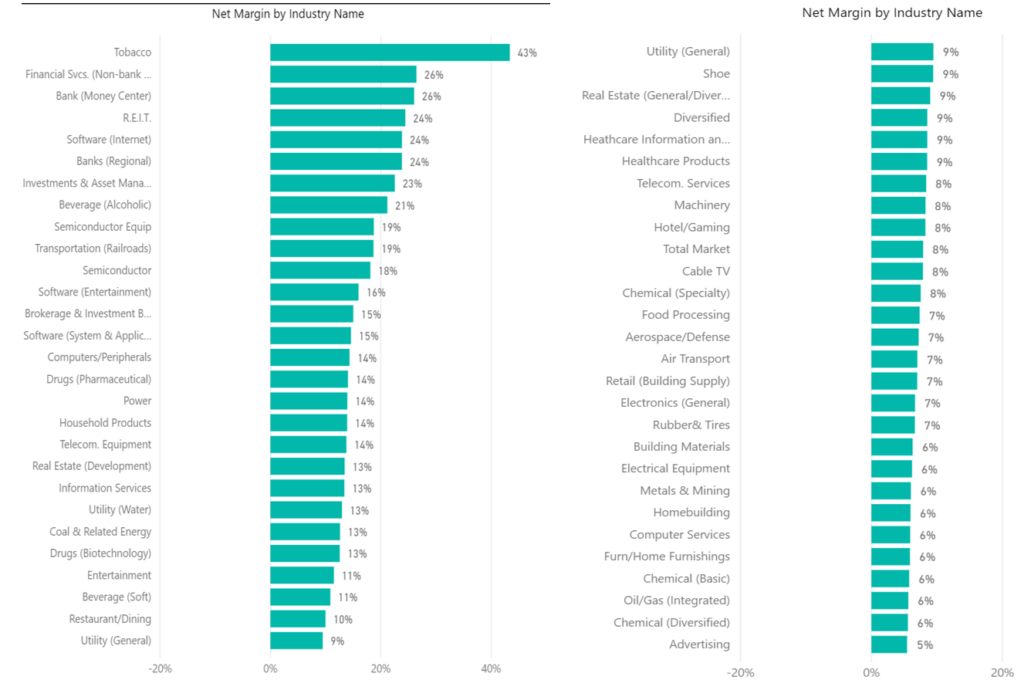Looking at the list of the top 100 global brands for 2019 compiled by The Financial Times, you see the list dominated by technology, retail, fast food, apparel, luxury, alcohol, financial institutions, apparel, personal care, etc. But it’s surprising to see that one key industry that touches everyone’s life is missing, and that is the aviation industry. No airline or airport has made it to the list. Of course, companies like DHL and FedEx are in the list, but they fall within the category of logistics/integrators.

Also, when you look at the profitability margins across 94 industries, one can see that air transportation does not compare to many of the top industries, where it is common to see net margins in the high double digits. Aviation in general struggles to net even 7%.

What the above highlights is that for any company in aviation industry aspiring to be a global brand or fetch healthy double digit margins, they have to do a lot more in terms of reviewing their business models, product and service innovation, brand loyalty, delivering brand promise, creating a niche market, and the list goes on. However, the intent of this article is not to outline the entire list of components that can bring an aviation organization to the forefront of top brands or earn higher net margins, but to highlight a key skill set without which any aviation organization cannot sustain operations, let alone being a top brand or fetching higher net margins. Having critical thinkers in key roles in the organization is the most important factor to increase profit margins and become recognized as a global brand. This claim is backed by industry experts: one of the top skills outlined by the World Economic Forum for organizations to be successful in the Fourth Industrial Revolution (the technological revolution) is critical thinking. Let’s first examine what it actually is. Critical thinking is the ability to think clearly and rationally about what to do or what to believe. It includes the ability to engage in reflective and independent thinking. Someone who can think critically is able to do the following: Solve problems systematically and identify the relevance and importance of ideas Understand the logical connections between ideas and interdependencies between various organizational elements Identify, construct, and evaluate arguments Detect inconsistencies and common mistakes in reasoning Critical thinking is not a matter of just accumulating information. A person with a wide breadth of knowledge and a strong memory cannot be termed as critical thinker. A critical thinker is a person who can foresee effects and consequences of actions and decisions and knows how to make use of information to solve key business problems. Quite frequently, critical thinking is confused with being argumentative or being critical of other people, projects, or initiatives. Although critical thinking skills can be used in exposing fallacies and bad reasoning, critical thinking can also play an important role in cooperative reasoning and constructive tasks. Critical thinking can help aviation organizations by: · improving business ideas · challenging traditional processes and systems for new improved customer friendly processes · assessing realistic market demand · enhancing operational efficiencies · Innovating and creating new products and services · improving employee productivity and organizational culture · cutting through the noise and biases · and the list goes on Some people believe that critical thinking hinders creativity because it requires following the rules of logic and rationality, whereas creativity might require breaking rules. This is a misconception. Critical thinking is quite compatible with thinking "out-of-the-box", challenging consensus and pursuing less popular approaches. If anything, critical thinking is an essential part of creativity because we need critical thinking to evaluate and improve our creative ideas. Once the devastating effects of the COVID-19 pandemic begin to lessen, all organizations within the aviation industry will be facing severe financial challenges. There will be less consumer demand and a more stringent focus on health and safety, which will essentially require critical thinkers in key roles to ensure that decisions are based on due diligence, logical reasoning, data, analytics, and creativity. The best decisions will have to be made to endure and thrive post-pandemic. References https://www.ft.com/content/3a3419f4-78b1-11e9-be7d-6d846537acab https://philosophy.hku.hk/think/critical/ct.php https://app.powerbi.com/view?r=eyJrIjoiNjY1MGQwNDktY2Y2Ni00ODNiLWI0ZDItYjI0ZWQ2MTg2NjJlIiwidCI6ImVkZmYzMjg1LTk5NGYtNGE1ZC1hNjYxLWRkMTRjMmY1YTU4NSIsImMiOjF9 https://www.weforum.org/agenda/2016/01/the-10-skills-you-need-to-thrive-in-the-fourth-industrial-revolution/
